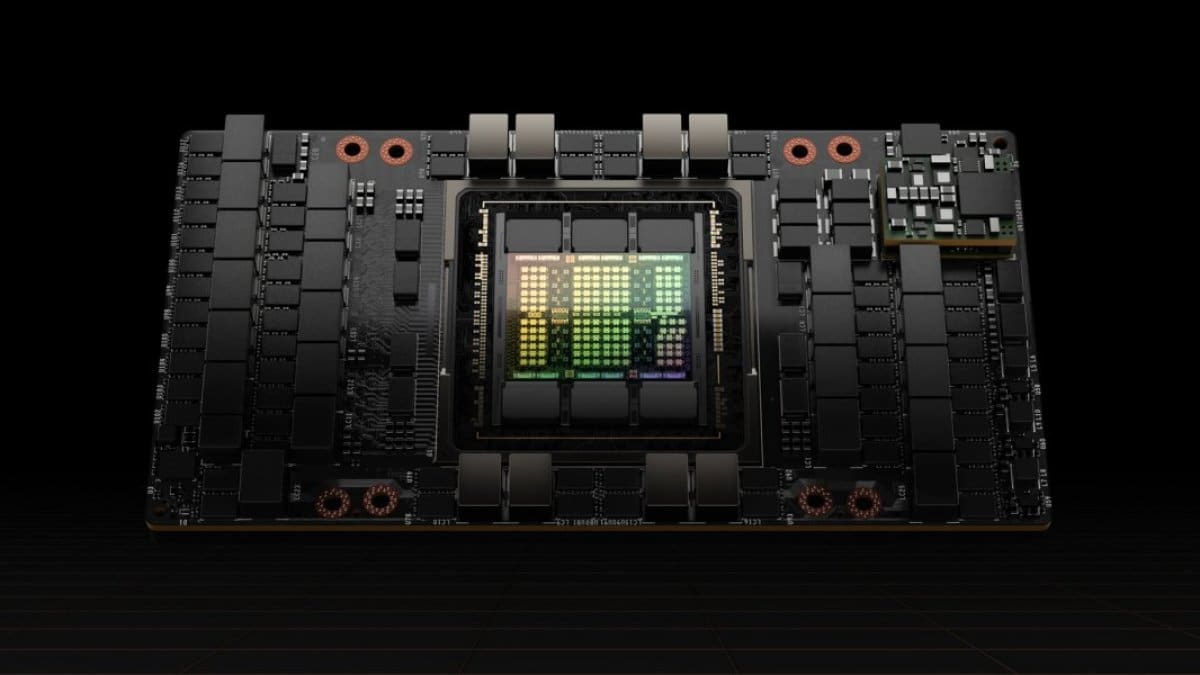The U.S. Congress is debating a proposal to equip graphics cards with a tracking and remote disabling system aimed at curbing their smuggling to restricted countries.
In the midst of a technological war for leadership in artificial intelligence, the United States is preparing a controversial offensive to limit the export of its most advanced chips to China. U.S. lawmakers are pushing for regulations that would require manufacturers like NVIDIA to incorporate tracking and remote shutdown mechanisms in their GPUs, in order to prevent their use outside authorized territories, according to reports from Reuters.
This measure is part of a broader strategy to combat the smuggling of critical components, which has reached alarming levels. In recent months, there have been surreal attempts to introduce GPUs into China camouflaged among live lobsters, in false pregnant bellies, and even in containers of technological contraband.
### A Tracker to Know If a GPU Ends Up in China
The proposal, led by Democratic Congressman and former particle physicist Bill Foster, does not aim to implement high-precision GPS tracking, but rather a simpler yet effective system. The idea is for GPUs to send periodic signals to secure servers; the latency in reception would allow for estimating whether they are operating in prohibited regions.
> “This is not a hypothetical future problem. It’s real and urgent. At some point, we will know that the Chinese Communist Party is designing weapons or general AI with our chips,” Foster stated in a recent Congressional session.
### A Controversial Shutdown Function
In addition to tracking, the legislation would include the capability to remotely disable chips if they are detected to have been diverted to a sanctioned country. The technology would be akin to a “digital boot”: the GPU would physically remain in its location but would be rendered completely inoperable.
This concept recalls rumors surrounding the F-35 fighter jets, which supposedly include a remote shutdown mechanism to prevent their use against the U.S. Although not officially confirmed, the rationale behind the proposal is the same: to maintain control over critical technology once exported.
### NVIDIA Claims It’s Not Possible, but Google Proves Otherwise
NVIDIA has previously stated that “it is not possible to track products once sold,” in response to inquiries about the use of its Jetson systems in the gray market. However, companies like Google are actively monitoring the location of their AI accelerators in data centers for security reasons, which highlights that such tracking is technically feasible.
If the legislative project is approved, it will not only affect NVIDIA but also manufacturers like AMD and Intel, who could be impacted as collateral damage.
### Ethical and Business Implications
The debate around remote control of hardware raises significant ethical and commercial questions. Is it legitimate for a country to remotely block a product for which a customer has paid millions? What happens if the U.S. decides one day to cut access for political or strategic reasons? Such restrictions could damage trust in the American tech industry and open the door to alternative developments in other countries, especially China.
The measure could also have repercussions in the hardware industry, where integrators and distributors might seek untraceable alternatives to reduce technological dependence on the U.S., a trend already seen in sectors like aviation and military equipment.
### Security or Total Control?
Washington’s intent is clear: to prevent its most advanced technology from being used to compete against or threaten its strategic interests. However, implementing tracking and remote shutdown technology also opens the possibility of total control over the hardware lifecycle, even after sale.
If the regulations succeed, future AI chips could come equipped with a digital switch controlled by the U.S. government, marking a pivotal change in global technological sovereignty.

